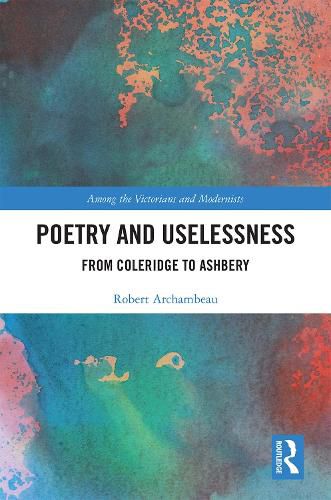Readings Newsletter
Become a Readings Member to make your shopping experience even easier.
Sign in or sign up for free!
You’re not far away from qualifying for FREE standard shipping within Australia
You’ve qualified for FREE standard shipping within Australia
The cart is loading…






W.H. Auden famously claimed poetry makes nothing happen. That may or may not be the case, but the idea that poetry makes nothing happen has, itself, been extremely influential, and has made a great deal happen in the world. This book examines several of the main currents in literary history as that influential idea flows through poetry and into the wider world. Since the invention of the idea, it has influenced theories of education; helped legitimize the entry of the middle class into political life; spawned ideas of symbolism that are still with us; formed a bulwark protecting literary culture from the commercial world; helped create the artistic subculture of bohemia; informed queer discourse and identity; and helped create both contemporary literary taste and the institutions that support it. Through chapters on figures from Coleridge and Tennyson to Yeats, Eliot, Auden, Gertrude Stein and John Ashbery, we see how maintaining that poetry has no use in the world has been and remains a very powerful-and useful-idea.
$9.00 standard shipping within Australia
FREE standard shipping within Australia for orders over $100.00
Express & International shipping calculated at checkout
W.H. Auden famously claimed poetry makes nothing happen. That may or may not be the case, but the idea that poetry makes nothing happen has, itself, been extremely influential, and has made a great deal happen in the world. This book examines several of the main currents in literary history as that influential idea flows through poetry and into the wider world. Since the invention of the idea, it has influenced theories of education; helped legitimize the entry of the middle class into political life; spawned ideas of symbolism that are still with us; formed a bulwark protecting literary culture from the commercial world; helped create the artistic subculture of bohemia; informed queer discourse and identity; and helped create both contemporary literary taste and the institutions that support it. Through chapters on figures from Coleridge and Tennyson to Yeats, Eliot, Auden, Gertrude Stein and John Ashbery, we see how maintaining that poetry has no use in the world has been and remains a very powerful-and useful-idea.